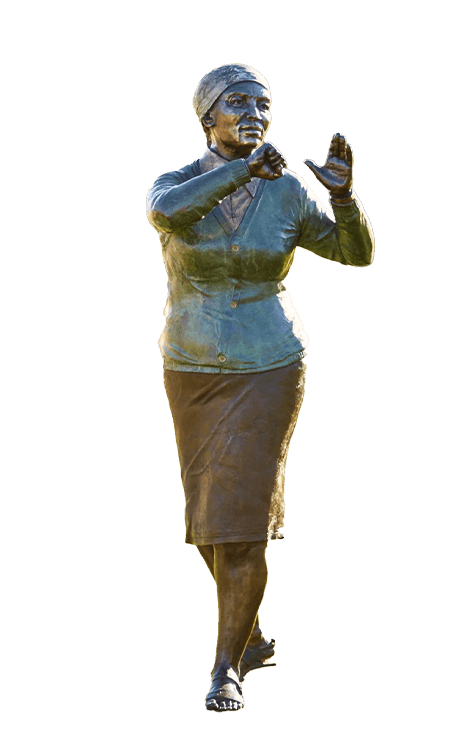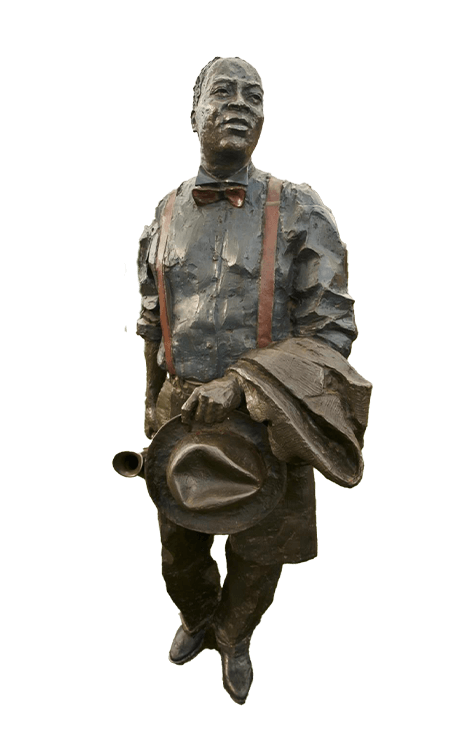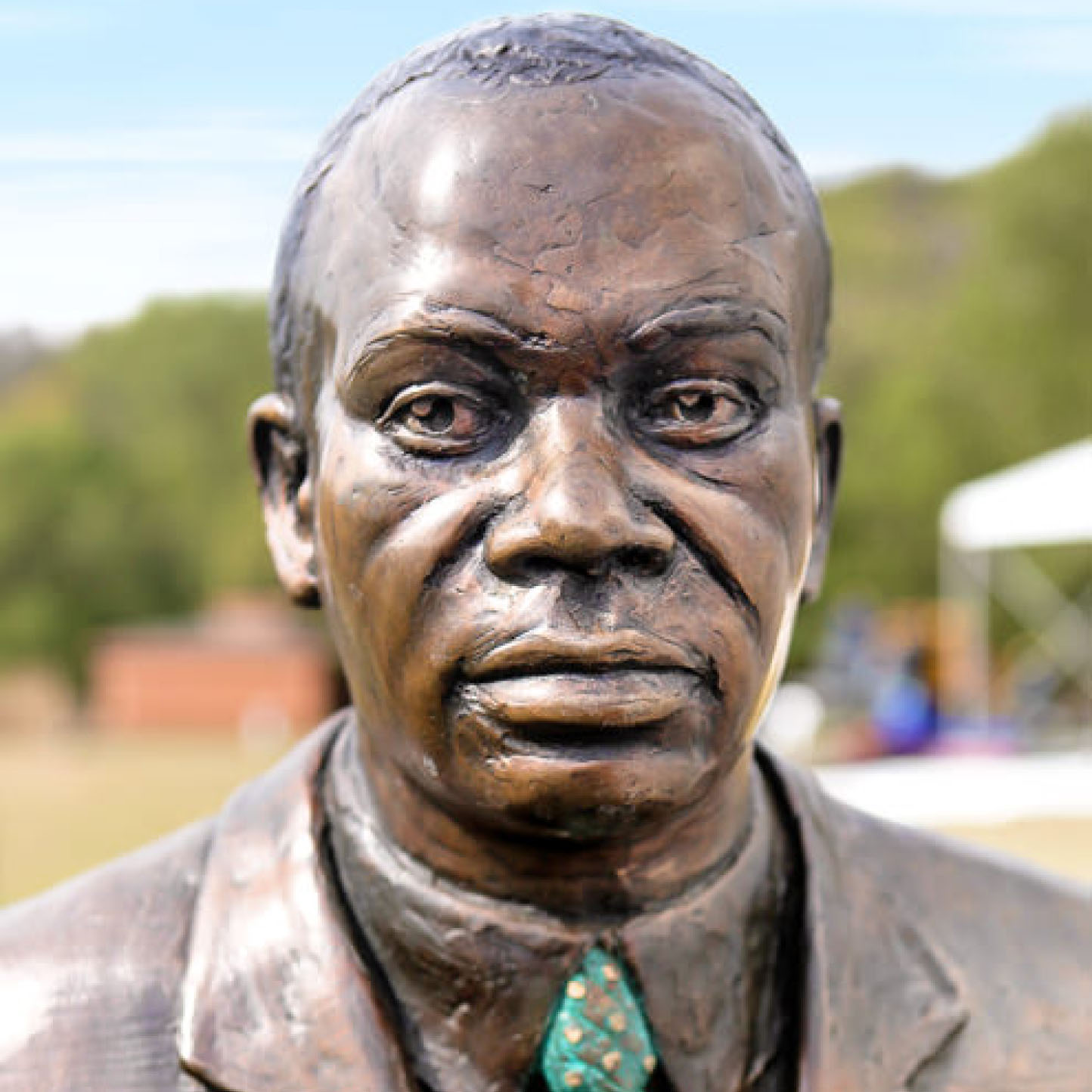
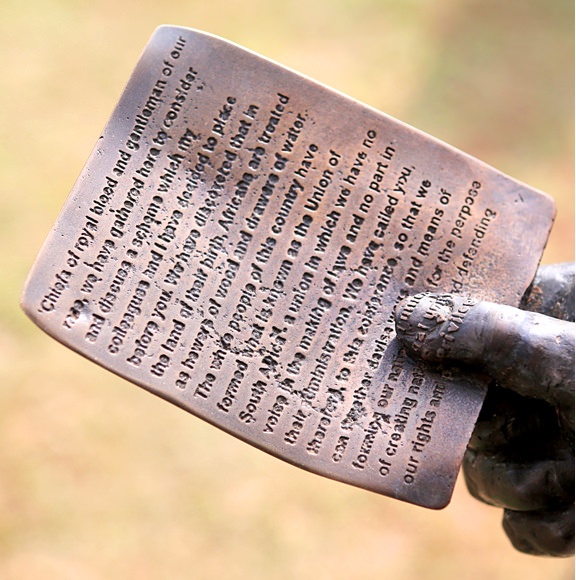
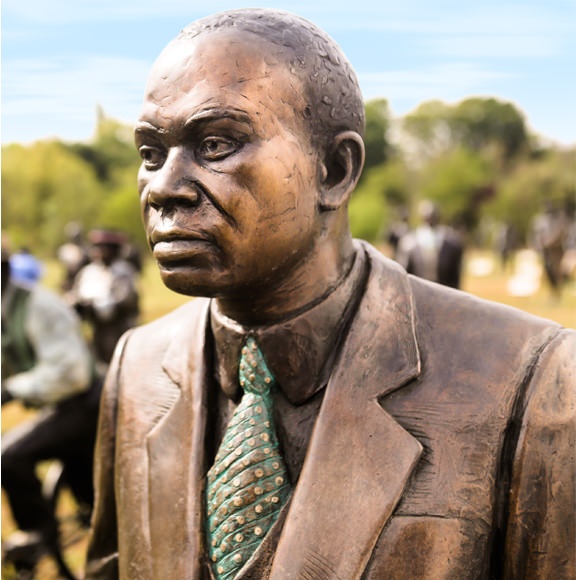
"The African already recognises his anomalous position and desires change. The brighter day is rising upon Africa. Already I seem to see her chains dissolved, her desert plains red with harvest, her Abyssinia and her Zululand the seats of science and religion, reflecting the glory of the rising sun from the spires of their churches and universities."
Pixley ka Isaka Seme, ‘The Regeneration of Africa’, address to the Royal African Society in London, 1906
Pixley Ka Isaka Seme
1881 – 1951
First Treasurer General of the South African Native National Congress, President General of the African National Congress
Pixley ka Isaka Seme was born at the American Zulu Mission Station in Inanda in present-day KwaZulu-Natal in 1881.
He attended the local mission school where the American missionary, Reverend Stephen Pixley (after whom he was named), took an interest in him and arranged for him to go to the Mount Hermon School in Massachusetts in the United States.
He then attended Columbia University in the city of New York and graduated with a Bachelor of Arts degree in 1906. He won the university's highest oratorical honour, the George William Curtis medal, for his speech The Regeneration of Africa that year.
With financial assistance from missionaries he entered Jesus College in Oxford, England, to study law.
In 1909 he gained a Bachelor's degree in Civil Law, passed his first bar examinations and was called to the Bar at the Middle Temple, London. In 1909, Seme met the multi-racial delegation, led by Rubusana and Schreiner, that arrived in London to petition the UK parliament not to pass the South Africa Act.
Seme returned to South Africa early in 1910 and set up a law practice in Pretoria, with a branch in Johannesburg. He was involved with the then recently formed South African Native Convention, producing a draft constitution for the new group. He followed this up with a prospectus calling for a National Congress that would unite all Africans regardless of ethnic or language differences.
Under Seme's name the clarion call went out to the African elite to assemble in Bloemfontein on 8 January 1912 for the formation of the South African Native National Congress (SANNC, that became the African National Congress (ANC) in 1923). He gave the keynote speech and was the dominant influence throughout, and was elected as its first Treasurer General.
He launched the organization's newspaper Abantu-Batho because he believed that a regular channel of communication had to be created to maintain contact between the new organization and its members. Four editors were appointed to oversee the publication of content while Seme supervised the project as the first managing editor. The paper was multilingual, carrying articles in English, Xhosa, Zulu, Sotho and Tswana.
Seme was not involved in the 1913 anti-Land Act campaign and remained mostly out of public view for some years, building a large legal practice with many distinguished Africans, including the Queen Regent and King of Swaziland and Venda and Zulu chiefs, among his clients.
He resumed a prominent political role in 1932, as head of a conservative bloc that unseated the radical Josiah Gumede and he became President of the African National Congress. In 1935 he joined Don Davidson Jabavu in convening the first meeting of the All African Convention, formed to oppose Hertzog's Native Bills.
He lost the ANC presidency to Zaccheus Mahabane in 1936, and thereafter focused on his legal practice. Seme was married to Harriet, a daughter of King Dinuzulu of Zululand. They had four sons and one daughter.
He died in Johannesburg in 1951. He was posthumously awarded the Order of Luthuli in Gold by the South African government in 2006 for exceptional contribution to the struggle for a non-racial, just and democratic South Africa.
